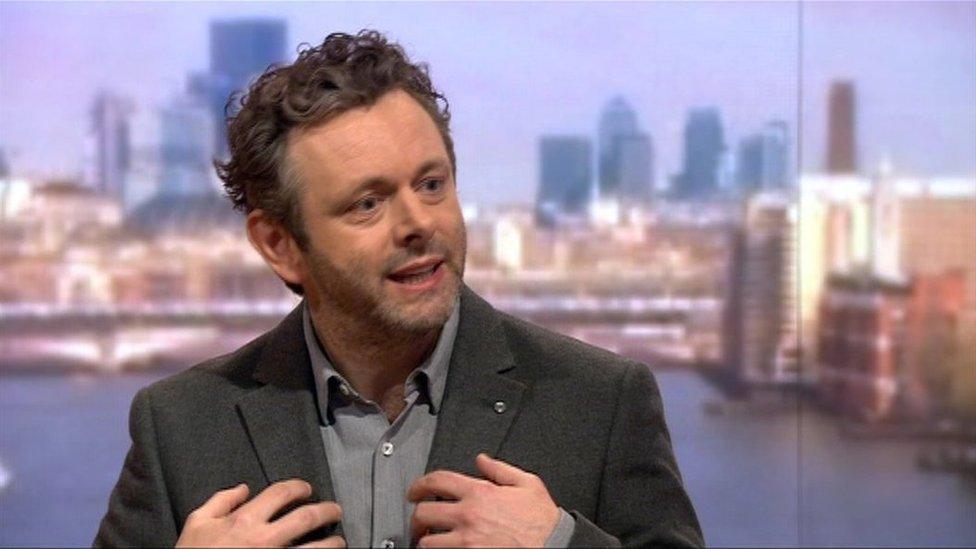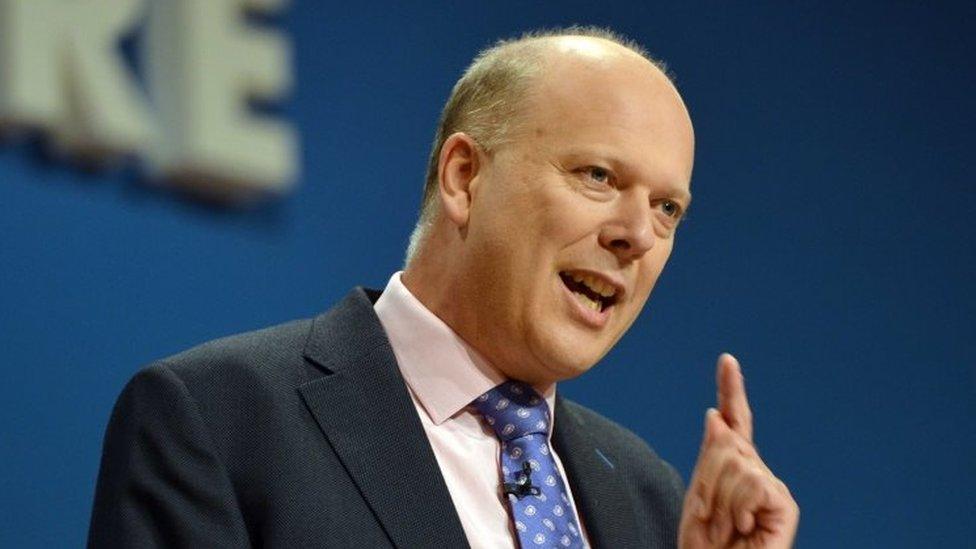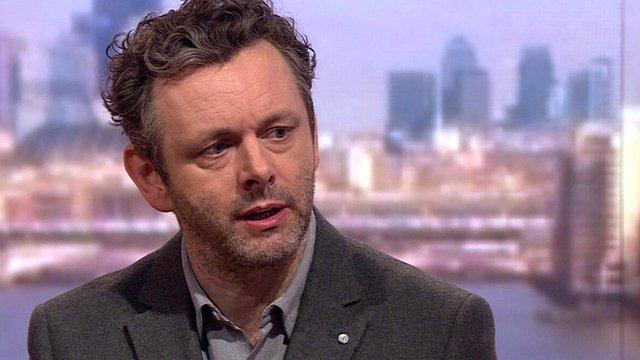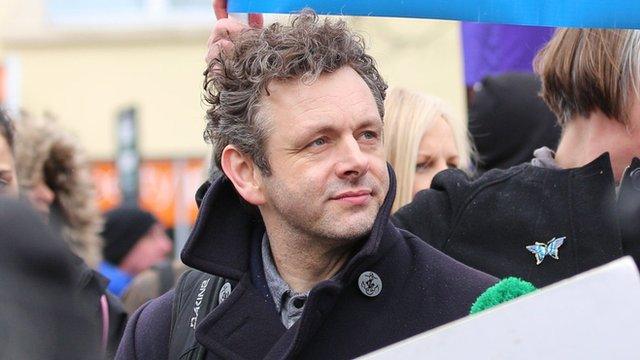Michael Sheen: 'Full frontal attack' on Freedom of Information
- Published

Michael Sheen has campaigned to protect the 'core values' of the NHS
Actor Michael Sheen has claimed the Freedom of Information Act is under "full frontal attack" by UK ministers.
He said the public's right to know should "transcend the political rivalries and jostling" of Westminster.
A commission, external is considering changes to the law, including more charges for access to material, amid ministerial claims journalists misuse the act.
Sheen warned government becomes "opaque and removed from the people" when the public's "right to know" is not upheld.
The actor, from Port Talbot, said the commission was "nothing short of a full frontal attack" on the principle that the public had a "right to know".
"If the politicians and civil servants behind this assault get their way, then the right of you and I to understand the workings of our democracy will be seriously damaged.
"Newspaper journalism, whether local or national, has used FOI to hold the government to account on everything from MPs' expenses to staff shortages in the NHS."
Sheen said he was a "passionate" campaigner, and "a strong NHS with the ability to provide excellent healthcare to citizens is particularly close to my heart".
"Without a strong FOI Act, it would be much harder for me and those like me to see and understand the effects of government policy on this vital service," he said.
Regrets
But UK ministers say the act is being abused as a "research tool", with House of Commons leader Chris Grayling calling journalists' use of the legislation "unacceptable".
In October, he told MPs Freedom of Information requests were for "those who want to understand why and how government is taking decisions".
Mr Grayling added that Jack Straw, the former Labour home secretary responsible for introducing the law, regretted the legislation.
A Freedom of Information Commission spokeswoman said: "Freedom of Information is an area of considerable public interest and we want to hear the views of as many people as possible, which is why we have announced this public call for evidence, external.
"The commission is an independent body, with no pre-determined view, and is interested in gathering as much objective evidence as possible on the questions posed in the call for evidence".
The commission is asking for responses by 20 November.
- Published29 October 2015

- Published2 January 2015
- Published8 March 2015

- Published3 March 2015
